The dreaded C-word... cancer. It's a leading cause of death worldwide, with nearly 10 million people dying from the disease every year. An estimated 618,120 cancer-related deaths are estimated in 2025, in the United States alone. While many of the causes are widely publicized, like smoking, there are others that aren't spoken about too much.
Someone recently asked oncologists to name the things they never/always do, or eat, because of what they know about cancer, and thousands of responses followed. From using as little plastic as possible, to never drinking alcohol, cancer experts were happy to share their advice with netizens. Among the replies were a few that revealed whether or not you get cancer is largely to do with the luck of the draw.
Bored Panda has put together a list of the top answers for you to scroll through. And some might have you rethinking your lifestyle choices. We've also put together some info on cancer, based on stats and data from the National Cancer Institute. You'll find that between the images.
#1
Former fellow of the National Cancer Institute here—I hate to tell you this but it’s alcohol. It directly causes at least seven kinds of cancer. Twenty years from now we will talk about alcohol the way we talk about cigarettes today.
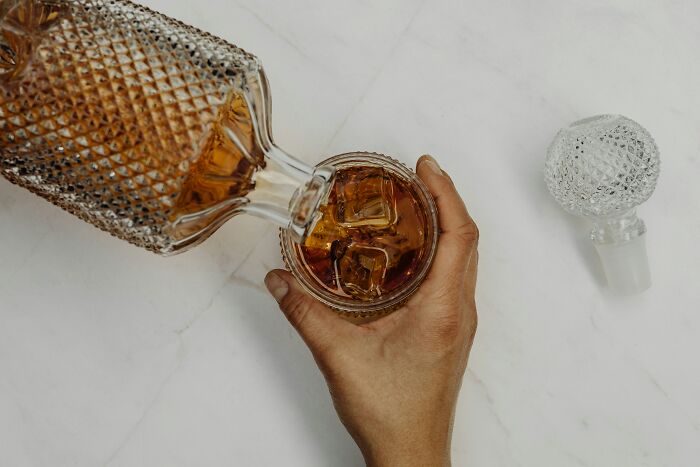
Image credits: troll_doll_buzzcut
We hear about cancer a lot: people getting it, people beating it, people dying. The disease is among the leading causes of death worldwide, and America's National Cancer Institute (NCI) has revealed that there were almost 20 million new cases and 9.7 million cancer-related deaths worldwide in 2022.
By 2050, the number of new cancer cases per year is expected to rise to 33 million, warns the Institute, adding that the number of cancer-related deaths is set to climb to 18.2 million.
But what exactly is this dreaded disease? Well, according the NCI, cancer is when some of the body’s cells grow uncontrollably and spread to other parts of the body.
#2
Cancer researcher here. You can do everything right and still get cancer. You can do everything wrong- smoke drink be fat etc and not get cancer. It’s bad luck and genetics.
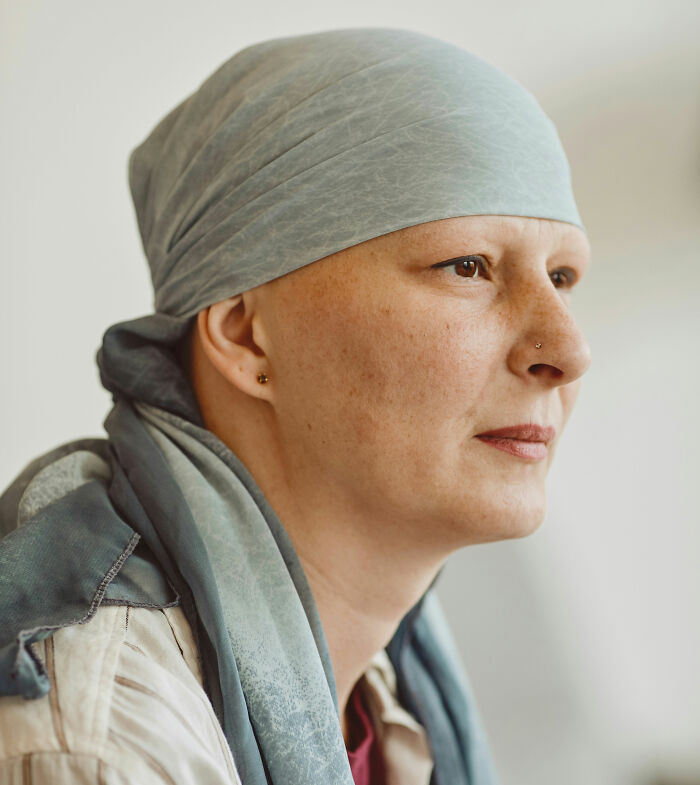
Image credits: bitchinchicken
#3
Oncology nurse here. I would never skip recommended cancer screenings, and I would never ignore weird unexplained symptoms (sudden weight loss, blood coming out your butt, ongoing abdominal pain, excessive bleeding or bruising, odd skin lesions, swollen lymph nodes that aren’t related to acute illness). It’s heartbreaking when people ignore symptoms and don’t get diagnosed until the cancer is too advanced for treatment to be helpful.
Also, I’m a big fan of sunscreen. Surgeries to remove skin cancer can do some gnarly things to your face.

Image credits: downtownhoundtown
"Cancer can start almost anywhere in the human body, which is made up of trillions of cells," explains the site. Human cells grow and multiply to form new cells as the body needs them. But sometimes things go wrong and abnormal or damaged cells grow and multiply when they shouldn’t.
"These cells may form tumors, which are lumps of tissue. Tumors can be cancerous or not cancerous (benign)," the NCI says. Another term for cancerous tumors is malignant tumors. And while many cancers form solid tumors, cancers of the blood, like leukemias, generally don't do this.
#4
You could live to be 100 if you gave up all the things that make you want to live to be 100.
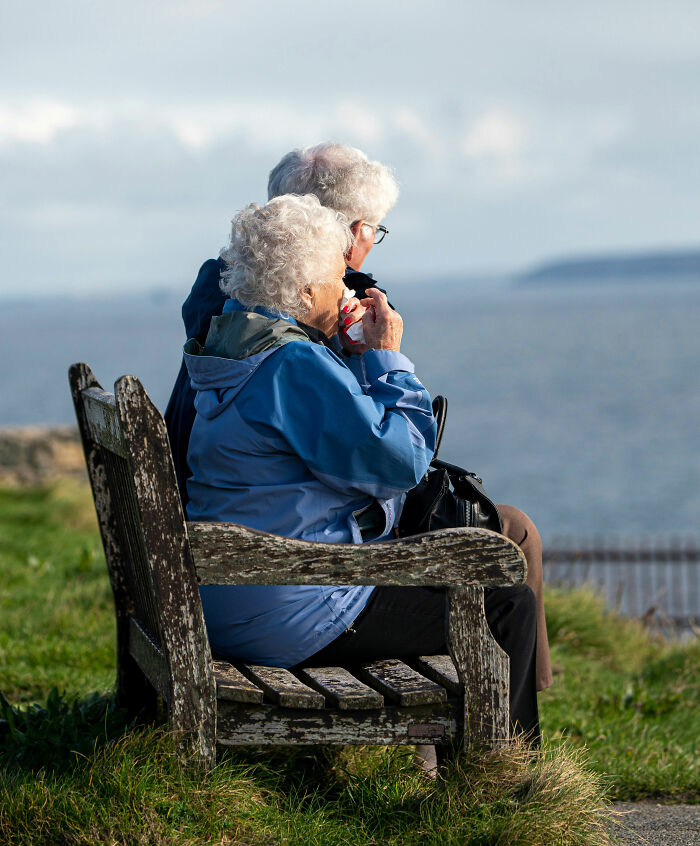
Image credits: justDNAbot_irl
#5
The amount of "not-an-oncologists here" giving out health advice is concerning.

Image credits: FlameHawkfish88
#6
Not an oncologist but my late father was. Don’t smoke, don’t drink alcohol, don’t be overweight, wear sunscreen, minimise eating pork. Eat fibrous vegetables, foods containing turmeric, don’t hesitate to advocate for yourself when using health professionals, and if they’re tossing up whether to go gently or radically, always opt for radically because one day you’ll need the radical surgery anyway, and by then you’ll be less likely to fully recover. One other thing he swore by was having a social life because happy and supported patients last longer even when terminal. My old man died aged 80 of - the irony - a rare cancer with a genetic link, so my own advice is always to keep your MOT screening appointments with the GP.
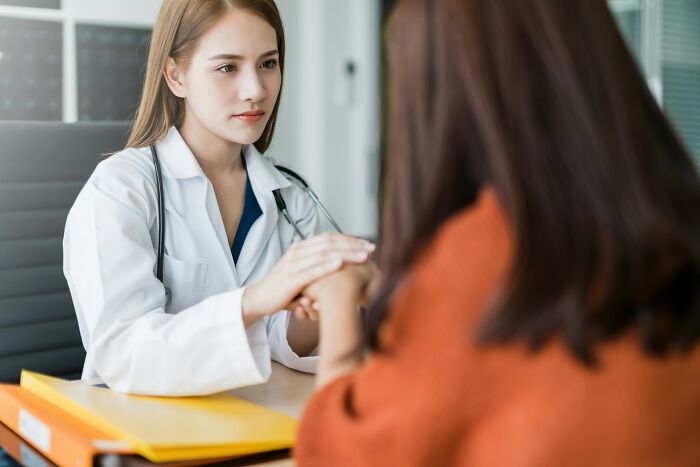
Image credits: LycheeMangoJamun
You might have heard the word "metastasis." This is when cancerous tumors spread into, or invade, nearby tissues and travel to distant places in the body to form new tumors.
"Benign tumors do not spread into, or invade, nearby tissues. When removed, benign tumors usually don’t grow back, whereas cancerous tumors sometimes do," the NCI site explains. "Benign tumors can sometimes be quite large, however. Some can cause serious symptoms or be life-threatening, such as benign tumors in the brain."
So, who is at risk of getting cancer? Keep scrolling to find out...
#7
Cancer biologist (researcher) of 20+ years. Avoid all tobacco. Don’t skip screenings. Limit alcohol. Try your best to control your weight. Use as little plastic as possible for food storage and drinkware (glass is best!) and never put plastic in the microwave.
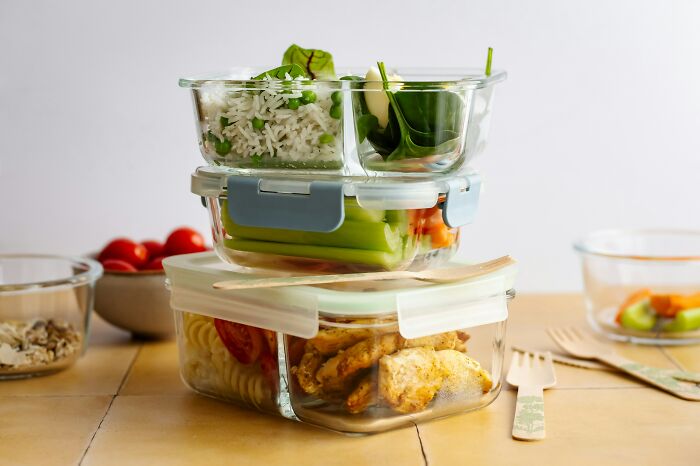
Image credits: Commercial_Can4057
#8
All you mf's in here trying to extend your life. Have you not had a good gander of how the world is now? Eat the cake, drink the wine, enjoy that bacon. We're all gonna die anyway, why not enjoy the few things available to us. In addition, my mom never smoked or drank and ate healthier and exercised more than anyone old person I knew yet she died of a nasty throat/mouth/head cancer that did her in a couple of years ago at the age of 76. My dad drinks like a fish and smoked for 25 years and at 78 he's still kickin' with minor health issues. It's the luck of the draw in my opinion.
#9
Tobacco anything - never. Alcohol - should really be never but I consume it only lightly. Screenings - never skipping one when it is recommended.
All this to say I still got breast cancer at the ripe age of 36 so sometimes you just can’t do much about bad luck.
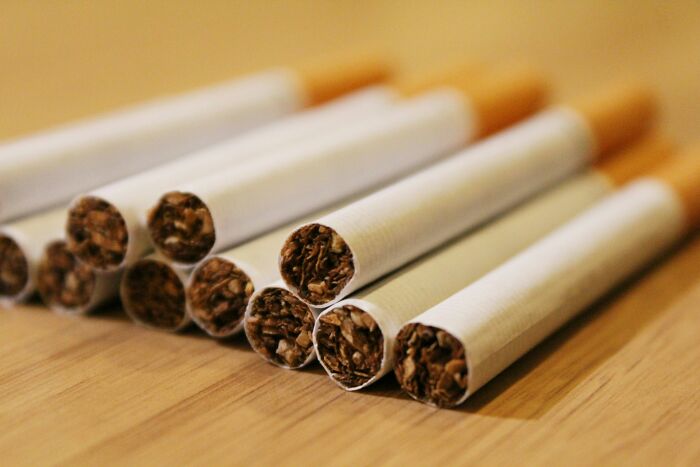
Image credits: derrymaine
According to the NCI, cancer is a genetic disease, meaning it's caused by changes to genes that control the way our cells function, how they grow and they divide. The site explains that these genetic changes happen for various reasons.
It can be due to errors that occur as cells divide, or because of damage to DNA caused by harmful substances in the environment (like tobacco, alcohol or the ultraviolet rays from the sun). But cancer can also be inherited from our parents.
#10
Why do doctors keep recommending mammograms for women with dense breast tissue? Mammograms can’t detect it in dense tissue until it’s too late. Why aren’t they doing MRIs and ultrasounds instead which can detect it earlier in dense tissue?
My wife just found this out the hard way. And she was shocked that she was getting the wrong kind of scan every year. Now it’s probably too late for her.
#11
Vaping, exactly because we DON'T know if it causes cancer. When I gave up smoking, everyone pushed me to switch to vaping and I was like "No thanks bro, I have no interest in being a guinea pig for this technology which will inevitably be found to cause 28 different cancers and will probably steal your girlfriend, too.".
#12
Hematopathologist here. I never use herbicide (weed treatments) on my lawn. I’ve seen too many childhood leukemias/lymphomas,especially in children of parents who work in lawn care. I also don’t smoke or drink alcohol.
"The body normally eliminates cells with damaged DNA before they turn cancerous," notes the NCI. "But the body’s ability to do so goes down as we age. This is part of the reason why there is a higher risk of cancer later in life."
Research based on data taken between 2018 and 2021 paints a grim picture, revealing that around 38.9% of men and women will be diagnosed with cancer at some point during their lifetimes. And the NCI says that in 2025 alone, an estimated 14,690 children and adolescents ages 0 to 19 will be diagnosed with cancer. 1,650 are expected to die.
#13
Bone marrow transplant hematology/oncologist here. DO NOT SMOKE. It doesn’t matter what it is, no smoking. Also increase your fiber and avoid Areca and Betel nuts, and get the HPV vaccine (9-valent now available up to age 45).
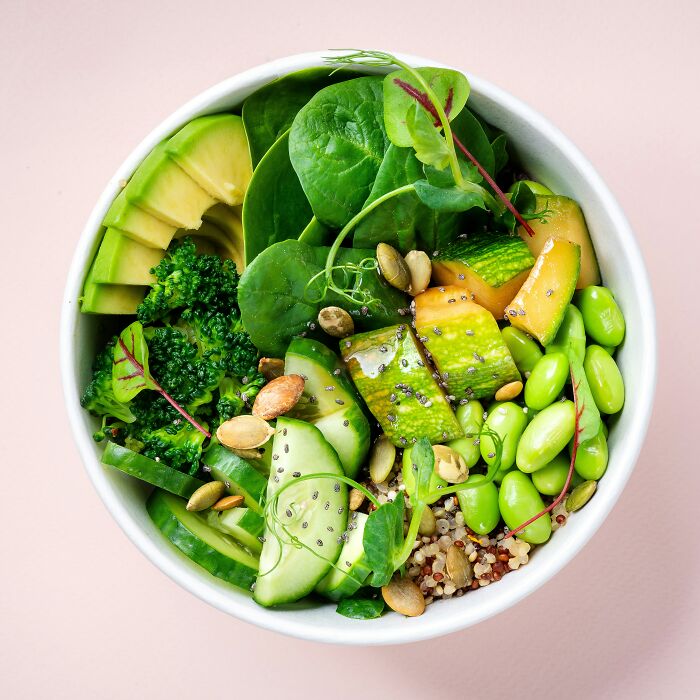
Image credits: sheepman66
#14
Oncologist here. Don’t smoke. Maintain a healthy weight. Eat and drink what you want within this framework. Alcohol in moderation is fine. Cancer is a partly genetics, partly exposure, and mostly just age and bad luck.
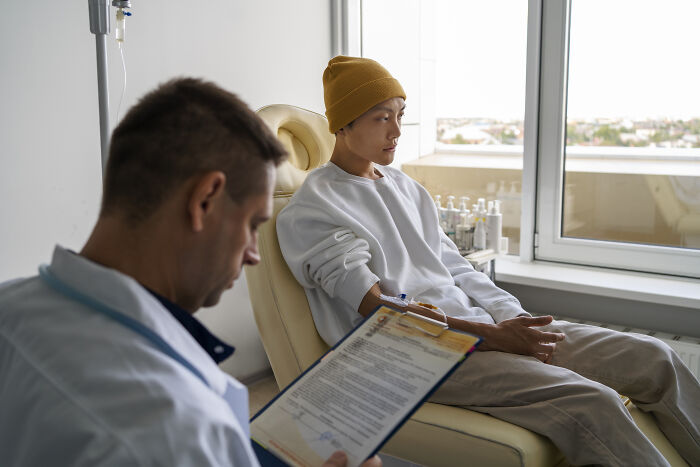
Image credits: antheus1
#15
Tanning salon.
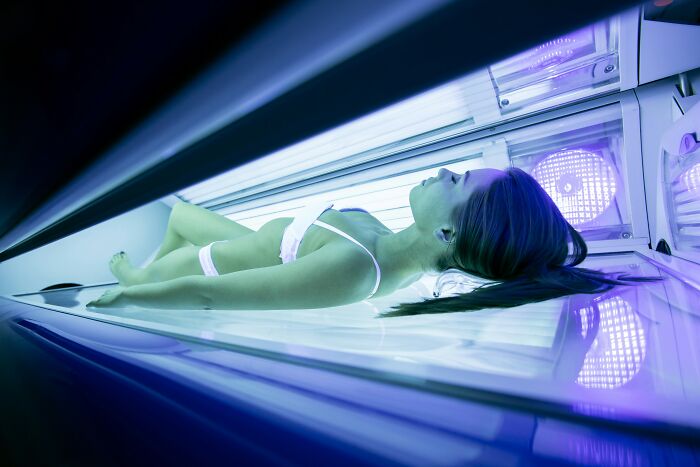
Image credits: LazyIncident2943
"Prostate, lung, and colorectal cancers account for an estimated 48% of all cancers diagnosed in men in 2025," reads the NCI's "Cancer Statistics" page. "For women, the three most common cancers are breast, lung, and colorectal, and they will account for an estimated 51% of all new cancer diagnoses in women in 2025."
#16
Not an oncologist, but I’m a radiation therapist, so I treat cancer patients every day. Obviously there are lifestyle habits you should avoid because they are linked to certain cancers or considered risk factors associated with certain cancers. That being said, one hard truth I’ve learned in the my years of doing this job is cancer really doesn’t discriminate. If it comes for you, it comes for you. I’ve treated 11 month old babies with brain tumors, a woman who never smoked a cigarette or had a drink in her life and did not have the BRCA gene and got cancer in not one but both breasts11 years apart- both primaries and not related to the other, triathletes with leukemia…it’s an evil and unfair disease. Now I’m in a specialized field where I only treat skin cancers with a superficial treatment machine, so I see less death and despair. My best piece of advice is WEAR SUNSCREEN and get your moles and spots checked. Health insurance typically covers a yearly total skin check at a dermatologist. .

Image credits: DAFFODIL0485
#17
Not an oncologist, but I had an Air Pollution lecturer once state that he does not eat barbecued food because of the charring and smoke residue carcinogen levels.
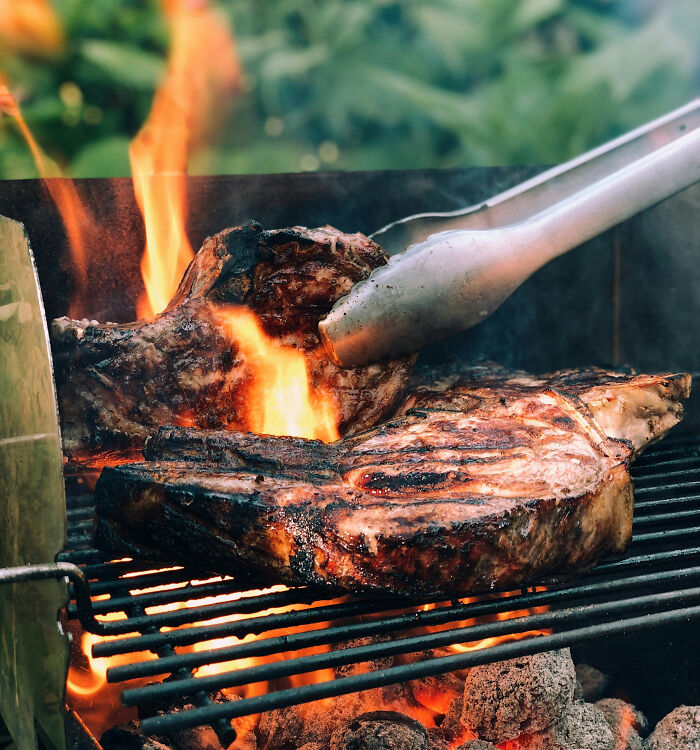
Image credits: square--one
#18
Don't eat cigarettes.
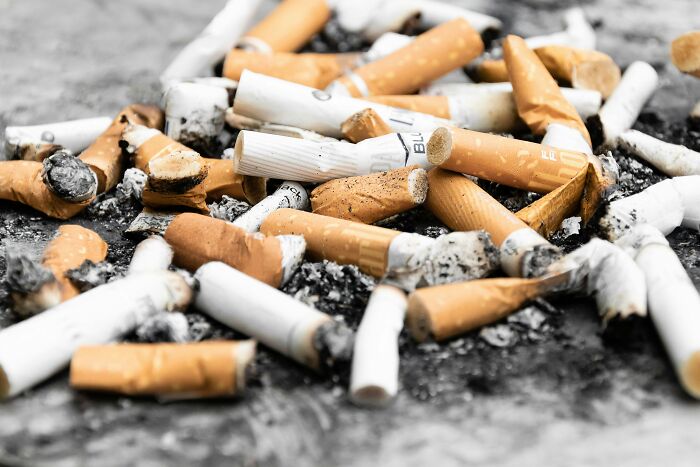
Image credits: Lurchie_
According to the NCI's “What Is Cancer?" report, cancer rates are highest in countries where the populations have the highest life expectancy, education level, and standard of living.
"But for some cancer types, such as cervical cancer, the reverse is true," it says. "And the incidence rate is highest in countries in which the population ranks low on these measures."
#19
My best friend's mom is a breast cancer specialist, who previously worked in the ER. And (this is real) she says the number one behavior she rails against is riding motorcycles. So many gruesome deaths. You can fight cancer, but you can't scrape that body back off the ground (or reattach heads.) Also, smoking is bad.
#20
Cancer nurse here. If you get any unusual symptoms such as lethargy, swollen glands, pain, weight loss, night sweats, a cough that won’t go away etc go get a simple blood test. If you’re bloated, have abdomen or back pain, changes in urine colour, headaches that persists, breathing changes, get an Xray/CT/ultrasound. If your GP dismisses you and doesn’t investigate at all… go get a better GP. The amount of patients that have been diagnosed late have usually been to their GP a few times and not had any tests performed. You can’t always prevent cancer but you can certainly catch it early and give yourself a better chance of beating it. 🙏🏻.
#21
Not oncologist but hospice nurse. End stage alcoholic liver disease is the most horrifying way to go, and doing what I do has completely changed my relationship with alcohol.
#22
I will always make sure my nieces and nephews are well protected in the sun. Sunburn, especially in childhood, is what significantly increases the risk for melanoma! I also nag at my other family members about good sun protection, as it is prolonged sun exposure that increases the risk of non-melanoma skin cancers.
Wear your sun cream people and do not use sun beds!
EDIT: I’m not an oncologist, but I am a health care professional! I posted this in the middle of the night, and in my sleep deprived state failed to realise the question was aimed oncologists. I hope my answer is still credible and helpful to people!
#23
Not an Onc however as a Dr I have to say limit your alcohol consumption and get daily exercise. There is no way of cancer proofing, you can take steps however it’s also largely genetic / non-avoidable exposures.
One thing I’ll add, the better shape you are when you do get sick, the better you’ll handle the treatment.
#24
Cancer scientist and epidemiologist (PhD). Echoing what many have said.
Tobacco (never)
Sunscreen (always)
Alcohol (moderation, less is better)
A huge fan of the HPV vaccination for both males and females. So many preventable cervical and head/neck cancers.
Get recommended screenings and if you have an inherited predisposition talk to your physician about an alternative screening schedule.
Try to move your body and eat nourishing foods.
Everything else is pretty debatable. Live your life and if something feels or looks weird get it checked out.
#25
I'm an oncology nurse and I go out of my way to never heat anything up in plastic. I go out of my way to not buy any drinks that are in plastic. I also pretty much drink alcohol maybe once or twice a year. Sunscreen no matter what & daily physical activity no matter what.
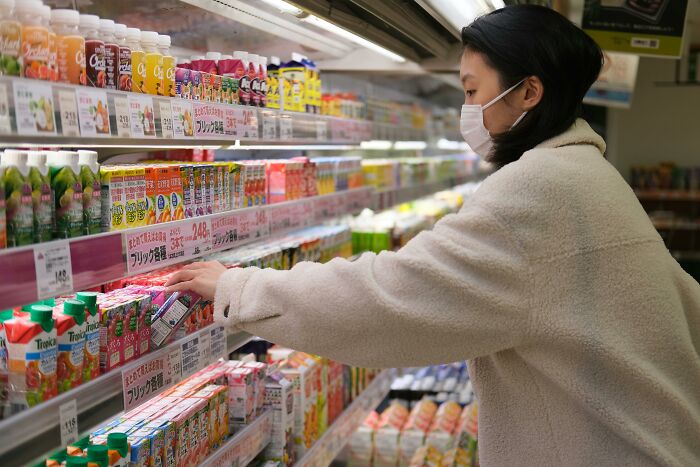
Image credits: mid_1990s_death_doom
#26
I work in path, meaning i’m a doc who uses a microscope to see the f****d up cells taken out of the pt and order whatever molecular-based/immunology based workup (for the actual docs, it’s immunohistochemistry) for identification and prognostication.
on one point, i’ve seen cancers linked to years of smoking and alcohol use. i’ve seen cases of colon and cervical cancers in people who’ve neglected their screenings. i’ve seen pts with more risk factors than a rap sheet have a mildly dysplastic growth on their (insert anatomical part here) and live perfectly normally afterwards
on the other hand, just like many of the people who’ve commented here, there’s been a rise in number of pts with late-stage (stage II, III, IV) breast, cervical, ovarian, lung, stomach, kidney, etc cancers in pts with few if any risk factors, the cause of which is still unknown as to what’s driving this increase. whoever finds out why more gen Xers and millennials are getting cancer at such higher incidence rates than BB’s will win a nobel.
in essence, reduce/eliminate whatever bad habits you can such as smoking and drinking, get exercise, eat fiber, but don’t see it as a guarantee against cancer. no one is too young to get it (youngest colorectal case i saw was in their early 20s) but raising up symptoms with a doc who actually cares is important. too many of the old school BB docs blowing off symptoms when there’s been a massive rise in LAMNs, aggressive ovarian cancers, and diffuse gastric adenoCas in this country.
in addition, targeted therapy and immunotherapy, plus targeted radiation and/or new chemo protocols for leukemias and solid tumors has grown exponentially, mainly due to advances in molecular characterization. just recently as of 2 months ago we are testing for a certain molecule common in GI cancers that, if present in someone’s tumor, renders them eligible for a newly developed targeted therapy option.
#27
My sil has always been insanely healthy. Her degree is in Nutrition. She is very active, never smoked- rarely drank. She is 58 and has terminal breast cancer.
#28
Oncology genetic counselor here - it's literally my job to figure out if someone's cancer is due to inherited risk and assess lifestyle risk factors that contribute to diagnoses.
Things I would never do:
-Smoke (increases risk for lung, breast, pancreatic, colon cancers and more)
-Alcohol (there is no "safe" amount - increases risk for colon, pancreatic, breast cancers and more - I tell my patients to limit it to weddings and funerals if they can)
-Aspartame (in many diet sodas, may increase risk for colon cancers)
-Eat too much red meat (no more than 2 servings weekly on average, increases risk for colon cancer)
-controversial: join the armed services in the US. The number of people who developed cancer because of something they were exposed to while serving is just mind-blowing (camp lejeune, asbestos in the navy, the tar pits, agent orange, etc etc etc)
Always recommended:
-keep your primary care informed about your family history of cancer (and other conditions, but that's not our focus here) because it may give you access to earlier or enhanced screening
-Screenings (mammogram, colonoscopies, prostate, skin)
-Exercise (30 min of cardiovascular exercise three times a week is correlated with a lower breast cancer risk)
-keep a healthy body weight (too much and the risk for uterine, colon, breast cancer and more increases)
-fiber (reduces risk of colon cancer)
-sunscreen (basal cell carcinoma is the most common cancer in the world)
-talk to your doctor if you're experiencing any ongoing unexplained symptoms, especially weight loss, fatigue, blood rectally or unexpected vaginally, pain, new lumps/bumps/skin lesions, new/changing moles, ongoing diarrhea/constipation (two week rule can help distinguish a random symptom from something that's more concerning) - I like to tell patients it's probably not cancer, but with your family history, talk to your doctor and make sure.
My biggest advice: do what you can to improve your lifestyle and do the screenings to hopefully catch diagnoses that are out of our control.
#29
Don’t catch Covid repeatedly.
#30
It struck me the other week that no one on my oncology care team is overweight.
So - answering for them - Don’t get fat.
#31
Unfortunately, medical school does not cover nutrition the way it should. My toddler just went through a year of cancer treatments and her oncologist and the nutritionist really only cared about her calorie intake, not what the calories were. It's very disheartening and makes you realize why the number of people with cancer keep rising significantly. Even the doctors treating the cancer don't really care about the foods that are causing it.
Her father and I cringe when she goes for follow up scans because the wing was donated by a major processed meat company... knowing processed meat is a class 1 carcinogen.
But welcome to America, where a patient healed is a dollar lost...
#32
Oncology nurse. Zero tobacco, zero alcohol, regular exercise, do my best to get enough fiber, and stay as hydrated as I can.
#33
Yeah, its a crapshoot.
20 yr smoker, heavy and light drinking 45 yrs
various d***s & physical recklessness 10 yrs
very bad diet 30+ yrs.
60 Cancer free
sister has never smoked, done d***s, light drinker, decent diet & exercise . . Cancer at 55.
I will say that while being currently cancer-free is great, there are PLENTY of reasons to take better care of yourself than I have.
Being cancer-free at 60 is great, but not so great when you feel closer to 80 half the time.
#34
Alcohol hands down
I also feel guilty every time I eat too much sugar.
#35
ITT: everything, apparently.
#36
I stopped eating cold cuts due to nitrosamines and also stopped eating burned/charred food, I even do not eat toasted bread that’s more than light brown shade. I used to drink very hot coffee but I drink it warm now since very hot drinks damage esophagus can cause esophageal cancer.
#37
This is less for what one can do for oneself and more to keep an eye out for: along with chance, genetics, smoking, and alcohol, a difficult childhood with adverse experiences can also significantly increase chances of cancer. A kid can have been in a bad home and do everything right and get hit with cancer because their caretakers didn't do right.
#38
This is a hilarious question. My oncologist laughs at me when I bring up how I eat for my health. Well, not laughs, but to him, there is no connection.
#39
Not an oncologist but I am anesthesia and do many an aneshetic for these.
Unexplained weight loss is ALWAYS bad (thyroid issue or cancer), blood in stool/sputum, daily headaches worse in the AM, night sweats, lymphadenopathy, lumps and bumps, moles that look odd.
Get skin cancer checks, screenings. Don’t smoke. Limit alcohol. Try to be healthy weight, but alas much is genetic.
#40
It’s already been said a bunch but hard agree so I’ll repeat it again. Do not smoke tobacco. Do not drink alcohol. Always get your screening anything but I feel extra strong about colonoscopies. Never ignore bloody stools.
#41
Something that always surprise my breast cancer patients is when I tell them to avoid vitamins specially antioxidants, as they could be associated with more risk of recurrence and dying from cancer if you take them while on cancer treatment, or even before treatment.
There is a lot of information regarding this issue with contradictory results, but until we get better information it is logical to be cautious about vitamins.
#42
Avoid processed foods, tobacco, alcohol, red meat, and excessive stress. Be sure to exercise and get a consistent 7-8 hours of sleep.
#43
I am not a doctor. However i want to mention being overweight is an issue with estrogen + breast cancer. Fat attracts estrogen. Estrogen impacts the breast cancer.
#44
Reading all this i'm surprised i have made it this far
Maybe i should start riding a motorcycle to increase my chances of not dying from cancer.
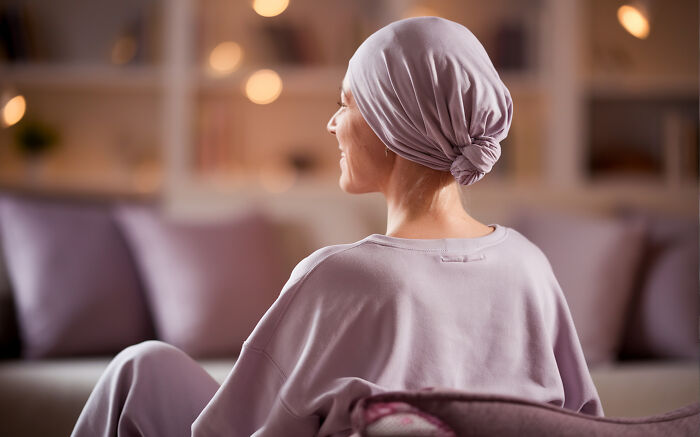
Image credits: DCyld
#45
I’m not a doctor. But I’ve gotta say, I’ve met people who never touched a drop of alcohol, never went anywhere near tobacco or coffee, and they still died young of cancer. Point being, you can do everything right and still die. I’m not saying you should smoke and drink your face off, but just have some perspective.
#46
As someone who grew up with an oncologist in the family (though they are now retired), I can share: They don’t eat red meat. They eat a balanced diet of fish/poultry, lots of fruits & vegetables, and 1 sweet a day. They take daily vitamins & supplements. They drink alcohol very rarely (special occasions, holidays, etc) & keep it to 1-2 beers. No tobacco/d***s. Walk daily & lift weights twice a week at 80 years old. No pesticides on the lawn, as “if it kills one type of vegetation, it will k**l all of the innocent critters & eventually us.” And, wears sunscreen daily, spf 30.
#47
My close friend's mom was put on mood stabilizers and given psych appointments after she experienced falls, panic attacks, and fainting.
When she lost vision in one eye, they actually did some scans and determined that she didn't have anxiety, she was dying of eye cancer that had spread to her brain.
#48
I have always heard processed meat like lunch meat & hotdogs.
#49
Red Meat and Pork.
N-glycolylneuraminic acid (Neu5Gc), a sugar molecule found in red meat, including pork, has been linked to increased cancer risk in humans.
Here's how it relates to cancer risk:
Neu5Gc is a non-human sugar: Humans cannot synthesize Neu5Gc due to a genetic mutation.
Dietary absorption: When humans consume red meat, such as pork, containing Neu5Gc, this sugar molecule can be incorporated into human tissues.
Immune response and inflammation: The human immune system recognizes Neu5Gc as a foreign substance and generates antibodies against it. Repeated consumption and subsequent antibody response can lead to chronic inflammation.
Increased tumor formation: Chronic inflammation is known to increase the risk of tumor formation.
Evidence from studies:
Studies in mice lacking the ability to synthesize Neu5Gc, mimicking the human situation, showed that feeding them Neu5Gc increased spontaneous tumor formation and inflammation.
Studies have also shown that human cancer cells can incorporate Neu5Gc, which can then activate pathways that promote cancer cell growth.
Research suggests that Neu5Gc may affect the gut microbiome, potentially promoting inflammation and cancer risk.
Pork and Neu5Gc: Pork is specifically mentioned as being rich in Neu5Gc.
Cooked organ meats: Studies indicate that Neu5Gc is particularly prevalent in pig organs and that its concentration can increase when cooked.
In summary, the presence of Neu5Gc in pork, when consumed by humans, can lead to chronic inflammation and increased cancer risk through its interaction with the immune system and its potential to promote tumor growth.
#50
Commenting so I can read and stress out about this later.
#51
A friend of mine's mom had cancer and she actually educated herself on stuff that "causes cancer" and found that the amount of msg a person would need to consume to get cancer would need to be bucket loads of straight msg. So now I enjoy eating delicious food.
Also, Splenda is fine. I Splenda tf out of my tea, lemonade, pancake mix etc.
And I enjoy diet soda. Knowledge is power.
#52
Not an oncologist, but my friends, sister once knew someone who dated an oncologist. They used to avoid eating mr brains pork faggots.
#53
Polonium pellets.







